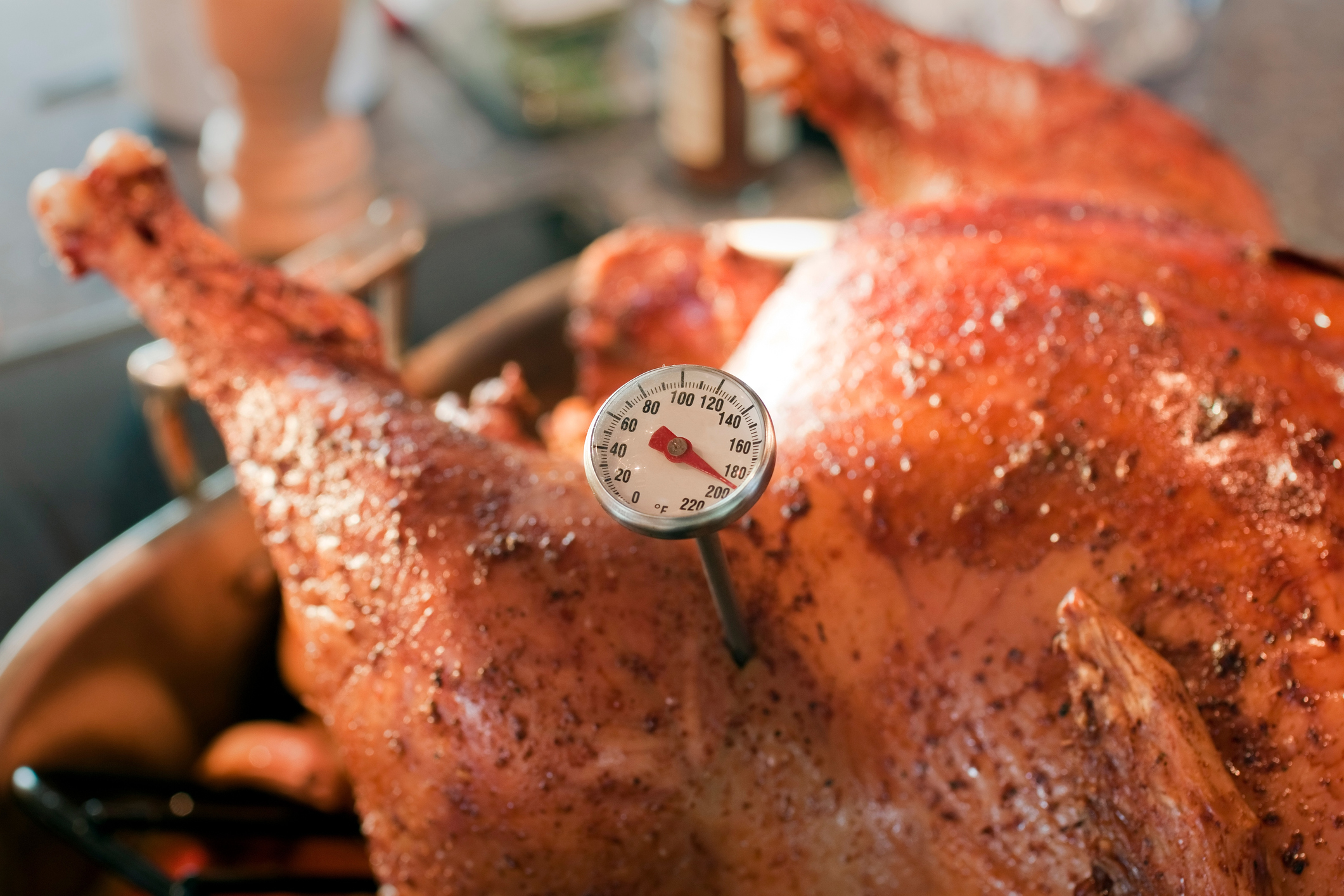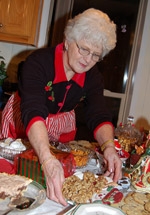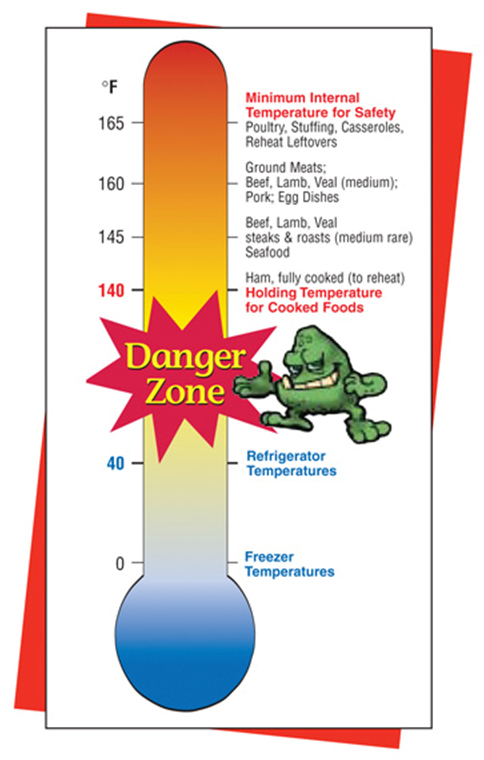Festive times for giving and sharing should not include sharing foodborne illness. These 12 common unsafe food handling practices occur when folks are celebrating and not paying attention to food safety.
One undercooked leg of lamb
Got meat? Get a thermometer! No matter how you slice it, using a food or meat thermometer is the only way to tell if food has reached a high enough temperature to kill harmful bacteria. Using a thermometer will keep you from overcooking food too. Cook fresh roast beef, veal, and lamb to at least 145 degrees F for medium rare and 160 degrees F for medium doneness. Cook whole poultry, ground turkey and chicken to a minimum of 165 degrees F.
Two dirty cutting boards
It is good to have two cutting boards: one to prepare raw meat and poultry, the other to prepare ready-to-eat foods like fruits, salads, and vegetables. Wash cutting boards in hot soapy water between uses.
Three harried hosts
Mistakes happen when people are busy and distracted trying to meet the needs of their guests. Make a list of tasks that need to be done along with directions and assign tasks to guests as they arrive.
Four unsafe temperatures
Foods should not be at room temperature for more than 2 hours. This includes preparation time.
- Keep hot foods hot (140 degrees F or warmer). Keep foods hot with slow cookers, warming trays or in the oven (set at 200-250 degrees F).
- Keep cold foods cold (40 degrees F or colder) by nesting dishes in bowls of ice.
Five wet dish towels
It’s best to air-dry dishes. Wet dish towels can harbor bacteria and spread it to clean dishes. Many times dish towels end up on your guest’s shoulder or ‘dirty’ countertops.
Six warm meat and cheese trays
Listeria monocytogenes bacteria can multiply at refrigeration temperatures. It’s been found in soft cheeses like Brie, feta, Camembert, blue-veined and Mexican-style cheese and in ready-to-eat cold cuts. Carefully observe “sell by” and “use by” dates on ready-to-eat foods. Make small platters of meat and cheese trays. Replace with fresh refrigerated platters when empty.
Seven sick aunties
Don’t prepare food when you are sick. Viruses cause more and more foodborne illnesses. Wash hands before and after handling food for at least 20 seconds. Avoid touching food with bare hands. Use gloves, spoons, tongs or paper towels instead.
Eight unwashed hands
Wash hands with soap and water to the tune of “Jingle Bells” before feasting. Announce, “We will be eating in 5 minutes. Please wash your hands before eating.”
Nine potentially hazardous foods
Bacteria loves to grow in food made with dairy products, shell eggs, meats, poultry, fish, shellfish, baked or boiled potatoes, cooked beans and lentils, rice or pasta. Keep these foods out of the temperature danger zone (40 to 140 degrees F).
Ten dirty fingers
The 10 most common causes of spreading disease are your fingers! Put chips, mints, peanuts and other ‘finger food’ in pourable containers or provide a spoon or tongs so each person doesn’t touch the food.
Eleven finger lickers
Don’t use the cooking spoon or your finger to sample the food while it is being prepared or served. Use a clean spoon each time you taste test.
Twelve plates of leftovers
Immediately refrigerate and cool leftover food in long shallow pans. Leave uncovered for quick cooling. Cover when cool.
Reviewed in 2021




